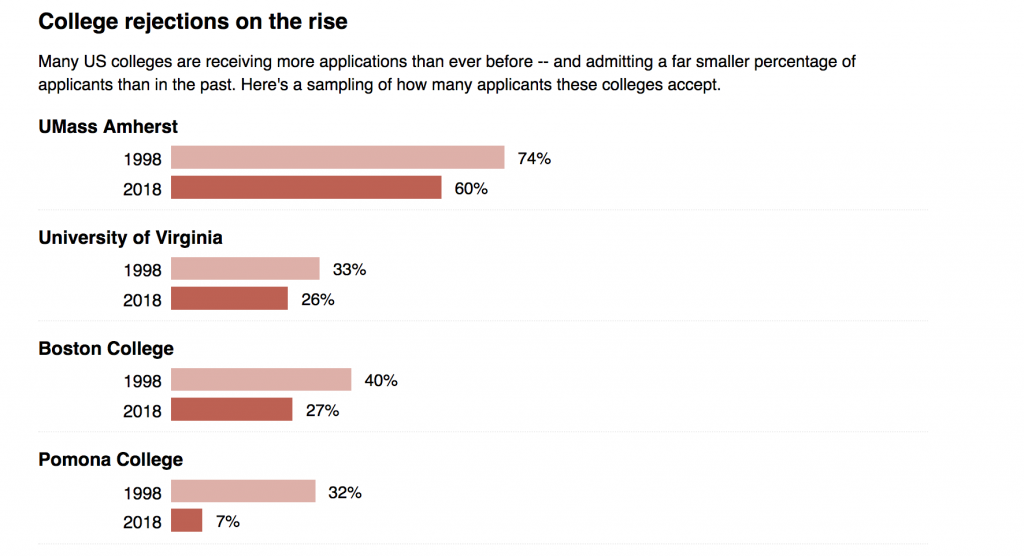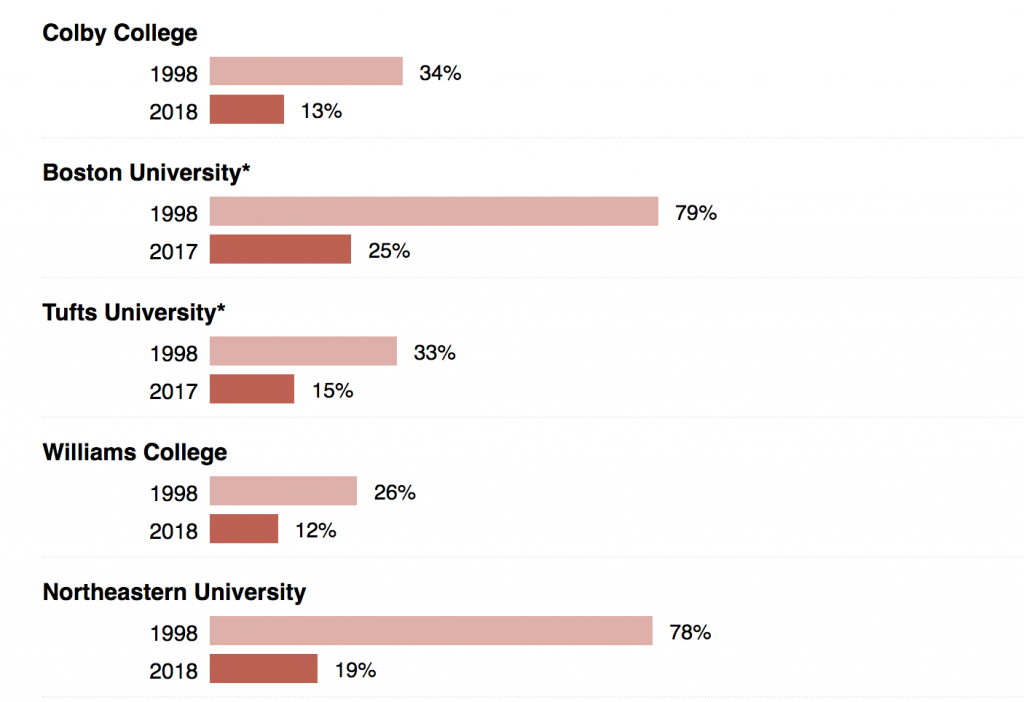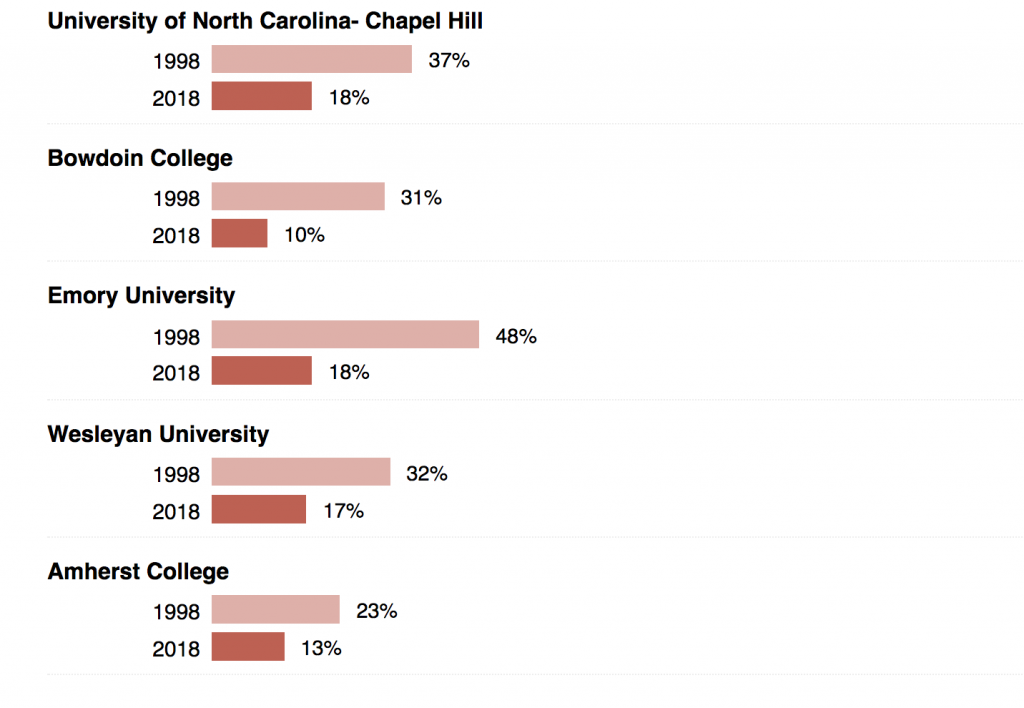College Rejections Aren’t Personal
I’m thankful that most of our students are admitted to their top choice schools in the EA, ED 1, or ED 2 rounds. But every year, some students are not so strategic with their choices and, therefore, are not as successful in these rounds. Each year since it was posted, I have revisited a wonderful article on rejection by Adam Grant. It begins by reminding us of what both students and parents can fast-forget when dealing with a college rejection:
When someone rejects you, it helps to remember that there’s another you.
You are not in this alone! A college with a 15% admit rate rejects 85% of applicants, so you’ve got a lot of company. Remember that you have to play to win, and when the game is over, the best thing you can do is move on confidently.
As someone who has been rejected an appropriate amount, How to Bounce Back From Rejection is something I know well! Yet, it’s not something that can always be taught or that we can prepare students for, especially if a student is used to coming out on top. During a sea change year (i.e., this year and… honestly…the pathreet 3 years!) and when there is a lot of misinformation and misguidance around how hard it is to get into selective schools in the US, results can feel even more confusing.
What Grants also points out that I hope all students and parents can keep in mind is rejection often happens for a reason that is not personal to the applicant: lack of fit. Fit is not all about where the student thinks they will be the best fit academically, culturally, etc. Fit is determined based on what a college needs (its institutional priorities)—it’s a moving target and not always a two-way street. Students don’t control, and in many cases don’t even know or understand, a college’s institutional priorities. How can they be when colleges are not transparent about it? What constitutes a fit in one applicant pool might not be a fit in another, and this can vary from school to school and year to year.
Students, please remember:
We are more than the bullet points on our resumes. We are better than the sentences we string together into a word salad under the magnifying glass of an interview. No one is rejecting us. They are rejecting a sample of our work, sometimes only after seeing it through a foggy lens.
Hang in there. In the end, as hard as it will feel to accept in the moment, things almost always work out just how they should.
*Stay in the know! Subscribe*



